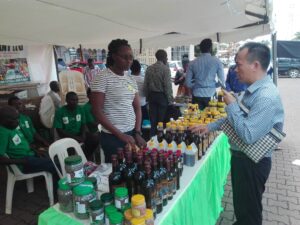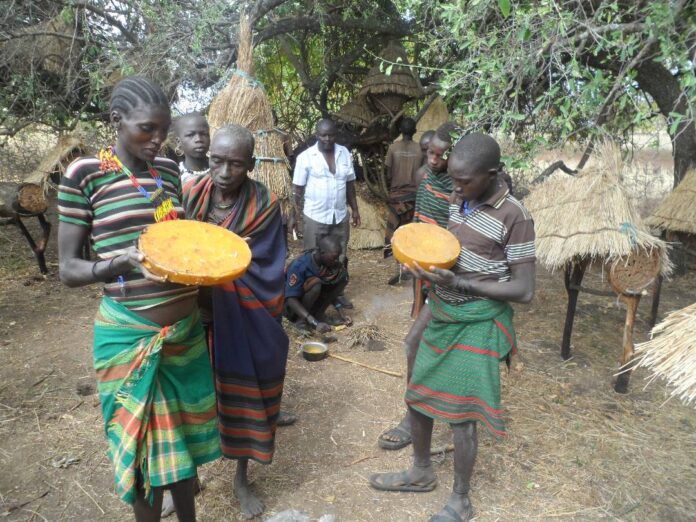Uganda has registered a high number of women and youth that have got involved in beekeeping with aim of improving their livelihood and enhancing development.
According to the Uganda Bureau of Statistics (UBOS) 2012 report, a total of 1,200,000 Million Ugandans are involved in beekeeping in various activities along the honey value chain.
In a recent interview with the Executive Director of The Uganda National Apiculture Development Organization (TUNADO), Dickson Biryomumaisho said that TUNADO works towards making beekeeping inclusive.
Biryomumaisho noted that currently, TUNADO coordinates a total of 93,200 individual beekeepers (41,846 female and 51,354 male) with a total of 45,900 youth. This is within 391 beekeeping cooperatives, associations, processors and groups.
He revealed that for long, beekeeping has been a male dominated agro enterprise with 92% of male participation leaving out women and youth who form majority of Uganda’s population.
“TUNADO recognizes the effort women have contributed to transforming agriculture and felt it was prudent for them to equally engage in beekeeping given its relatively low startup costs, labour and land requirements,” Biryomumaisho said.
He added that since 2013, TUNADO made a deliberate effort to engage women and youth into beekeeping, through targeted recruitment of women and youth into the project, and providing tailor made and demand driven capacity building beekeeping trainings for women and youth.
Phionah Birungi, the Programme Manager said that increasing apiculture input/equipment which is accessible for all, creating awareness and sensitization on beekeeping as a business, and establishment of an enabling environment by enacting favourable policies such the gender, inclusion, PWDs, and safeguarding polices has increased women and youth’s involvement.
The Executive Director stated that, by making beekeeping inclusive for everyone, TUNADO has reduced honey imports from 95% in 2004 to present day 5%. This has been done through developing the national beekeepers training and extension manual to harmonise beekeeping extension in Uganda.

Allon Bomujuni, the Membership Development Manager said that developing and rolling out the implementation of the beekeeping rural transformation model, establishing a shop (World of Bees) as a marketing and exporting company for bee products with 4 operational shops in Kampala City, has had a significant impact on their work.
He added that the Establishment of apiculture business fund to provide tailored credit to beekeepers has made it easy for women and youth to acquire funding which has also increased their involvement.
Biryomumaisho appreciated the role government is playing in promoting beekeeping through MAAIF and urged them to recognize bees as an agricultural input, burn the importation of lethal agrochemicals, and promote branding of agrochemicals with an indicator of ‘not harmful to bees,’ and set SOPs for using agrochemicals in beekeeping communities.
He implored Ministry of Water and Environment as well as NEMA to increase enforcement on environment destructive activities such as charcoal burning.
Biryomumaisho encouraged the public to embrace beekeeping especially women and youth because it is affordable and offers high returns on investment.















